By Andrea Svendsen, Managing Editor.
Ellwood Aluminum, a division of the 110 year old family-owned steel manufacturer Ellwood Group, has constructed and started up operation of its new secondary aluminum casthouse in Hubbard, Ohio (Figure 1). The new facility, which represents the company’s first entry into aluminum melting and casting, enables them to diversify their capabilities in order to better serve key markets, such as automotive, aerospace, and commercial transportation.
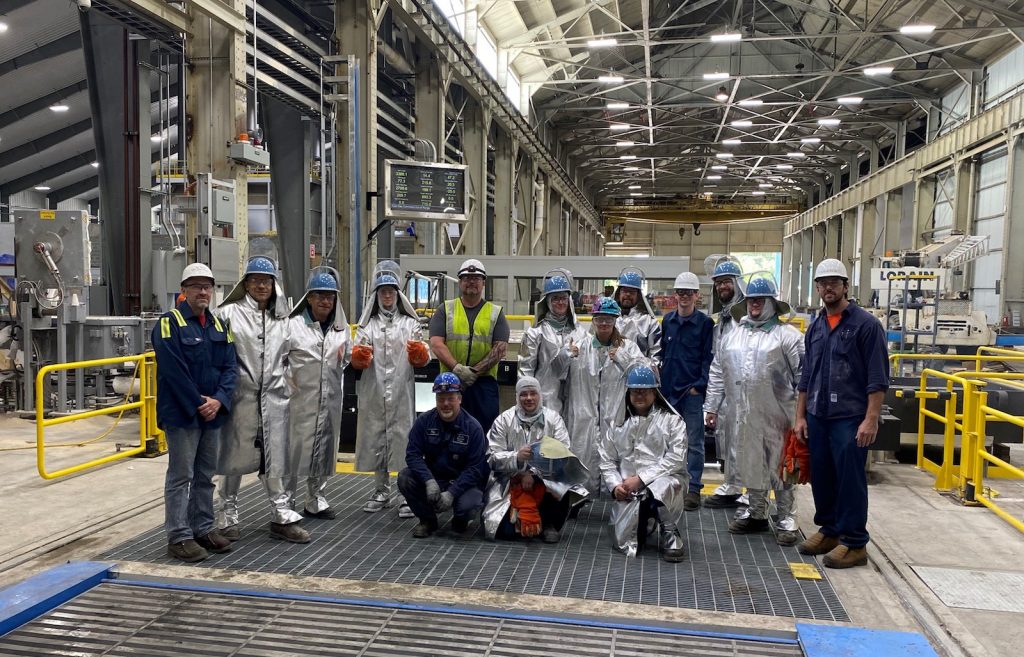
Over the years, both the aerospace and automotive markets have seen growth, with an associated growing demand for aluminum components. Although the aerospace industry is currently challenged by significantly reduced air travel due to the COVID-19 pandemic, the travel industry is expected to bounce back. At which point, orders for aluminum products are expected to return, especially considering the fact that the aerospace industry plans for the materials it will need for new airplanes decades in advance.
In addition, the automotive industry has seen a significant evolution, shifting to lighter weight materials that are strategically designed to fit specific needs. Aluminum has been and will continue to play an important and growing role in vehicle manufacture, both for traditional internal combustion cars and for newer electric models. Recognizing this revolutionary shift in automotive, Ellwood believed expanding into aluminum was an important decision in order to continue to serve its customers decades down the road.
Company Profile
Founded in 1910 by brothers David and Jonathan Evans, the Ellwood Group initially focused on the forging of steel and other metals. As the company grew, it expanded into other markets with the construction of its first steel casting facility in 1984. The company also gradually added production capabilities such as precision machining, boring, ring rolling, crank forging, and distribution.
Today, the Ellwood Group remains family owned, with all of the common stock being in the hands of 35 family members. The company operates more than 25 locations across North America, serving diverse and demanding industries, including aerospace, automotive, defense, industrial, marine, oil and gas, power, and transportation. In addition, the company has an integrated research division, which enables them to be a producer of engineered materials, focusing on the needs of their customers.
The Ellwood Group’s history of vertical integration meant that the expansion into the aluminum market was a natural fit. The company, which had only distributed aluminum products in the past, noticed an increased demand for aluminum billet and slab in key markets, such as aerospace and commercial transportation. This led them to invest in the construction of Ellwood Aluminum, a new casting complex that would allow them to expand into these markets.
“The decision to enter the aluminum market and expand Ellwood’s offerings was a lengthy one,” explained Scott Gregory, general manager and project manager of Ellwood Aluminum. “Among the driving forces was our desire to be a domestic supplier of aluminum products in North America, as there is currently an inability to source domestic products in the quality, sizes, and volumes needed to meet demand.”
Aluminum Casting
Ellwood Aluminum is situated at Ellwood Group property in Hubbard, OH, adjacent to Ellwood Engineered Casting (where the company produces cast and ductile iron). The location is central to many of the group’s existing customers and has easy access to a cost effective transportation and supply infrastructure.
The Ellwood Aluminum plant is housed within a 105,000 sq ft building. Of this, 30,000 sq ft is from a re-utilized building with existing overhead cranes, while 75,000 sq ft is a new structure that was constructed to house the scrap storage, melting, and homogenizing areas. The facility currently houses one aluminum casting line for the production of large billet and slab, with a second casting pit already dug to enable future expansion. Gregory noted, “The Ellwood Aluminum team traveled extensively to identify equipment that would be able to meet the demanding quality requirements of our customers, as well as to be reliable and achieve the level of automation we required.”
The casthouse operation begins with the preparation of scrap and primary aluminum. A two chamber sow dryer supplied by Gillespie & Powers, capable of processing up to 70,000 lbs per four hour cycle, removes moisture so the material can be safely melted.
The scrap aluminum and sow are then charged into the melting furnace (Figure 2). This is managed through fully automatic charging and skimming machines supplied by RIA Cast House Engineering GmbH (Figure 3). The rail-mounted equipment was designed to autonomously serve the melting and holding furnaces. The charging machine is capable of carrying and evenly distributing up to 33,000 lbs of scrap. The skimming machine incorporates AI cameras for autonomous operation without an operator, making the process quicker and more repeatable.
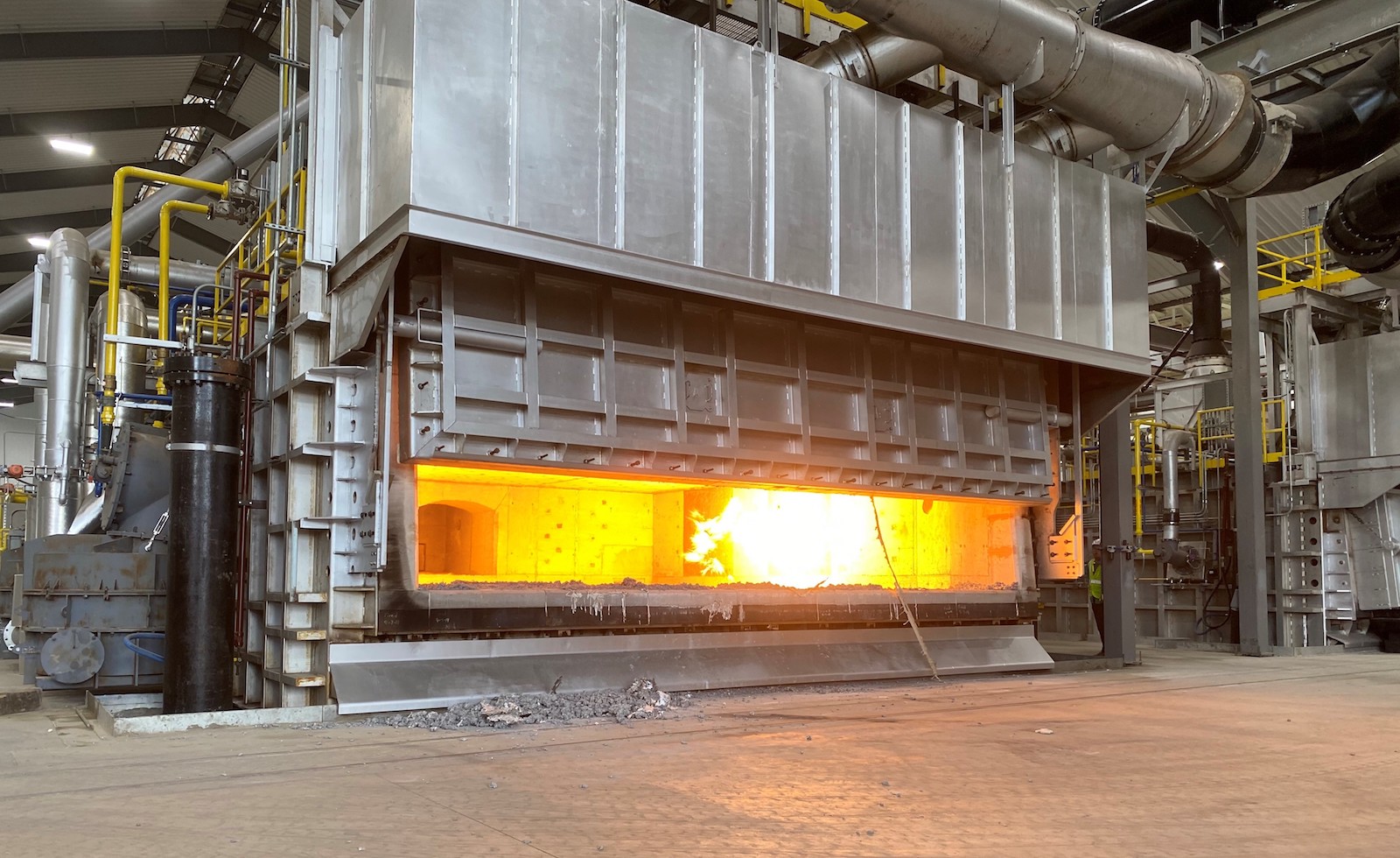
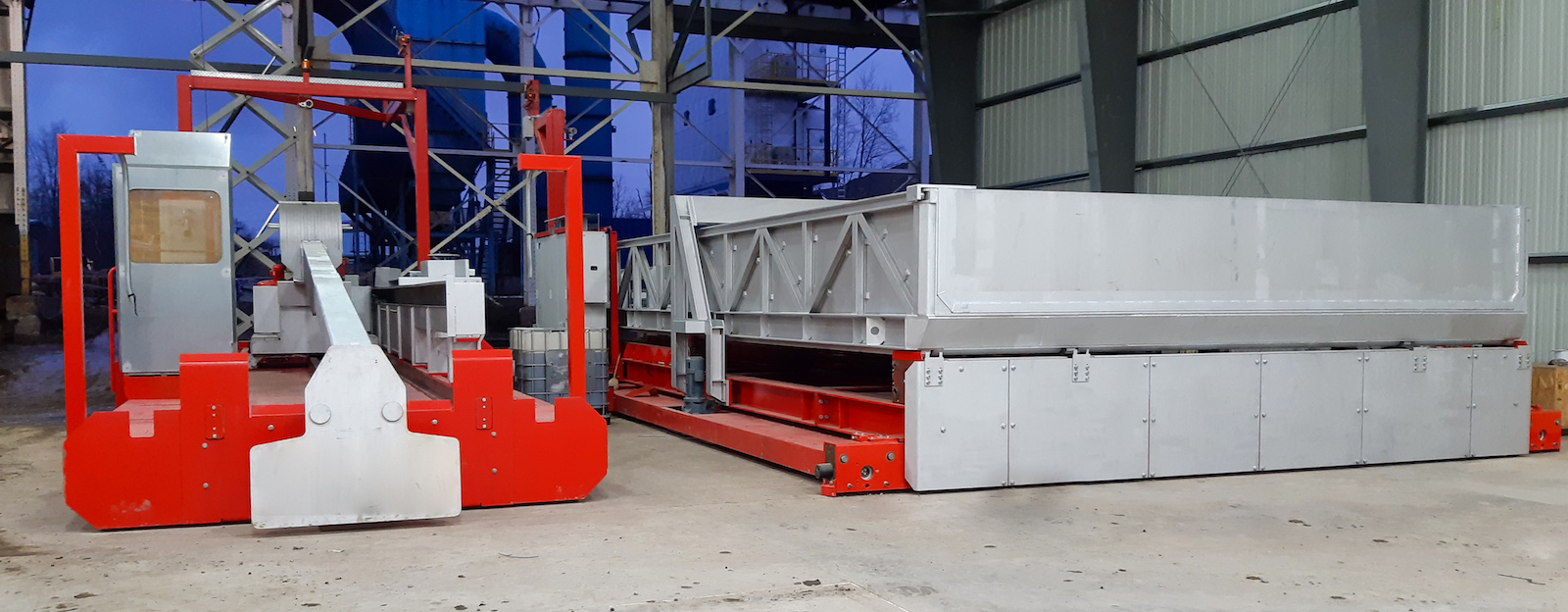
Gillespie & Powers supplied two furnaces, including a 55 ton tilting melting furnace (able to melt 30,000 lbs of aluminum scrap and ingot per hour) and a 50 ton tilting holding furnace (able to process 10,000 lbs per hour). Together, the two furnaces have an annual capacity of 150 million lbs of aluminum, while still providing sufficient downtime capabilities in order to adjust the product alloys and sizes as needed.
Both furnaces utilize TwinBed®II low NOx combustion systems (each with a pair of regenerative burners) from Fives North American Combustion, Inc. The regenerative burners are able to use recovered waste heat from the furnace gases in order to yield a level of high energy efficiency. The combustion systems are controlled through a Fives PLC system that enhances diagnostic capability and reduces the amount of hardware needed to be installed in the control panel.
Temperature and chemistry homogenization within the melt is achieved through installation of an air-cooled electromagnetic stirrer from ALTEK (Figure 4). The stirrer is equipped with a trolley mechanism that allows it to travel between the melter and holder, enabling it to be utilized on both furnaces. A STAS rotary flux injector removes impurities (dissolved alkalis like sodium, calcium, non-metallic inclusions, and hydrogen) from the melt in order to enable Ellwood Aluminum to meet high quality requirements.
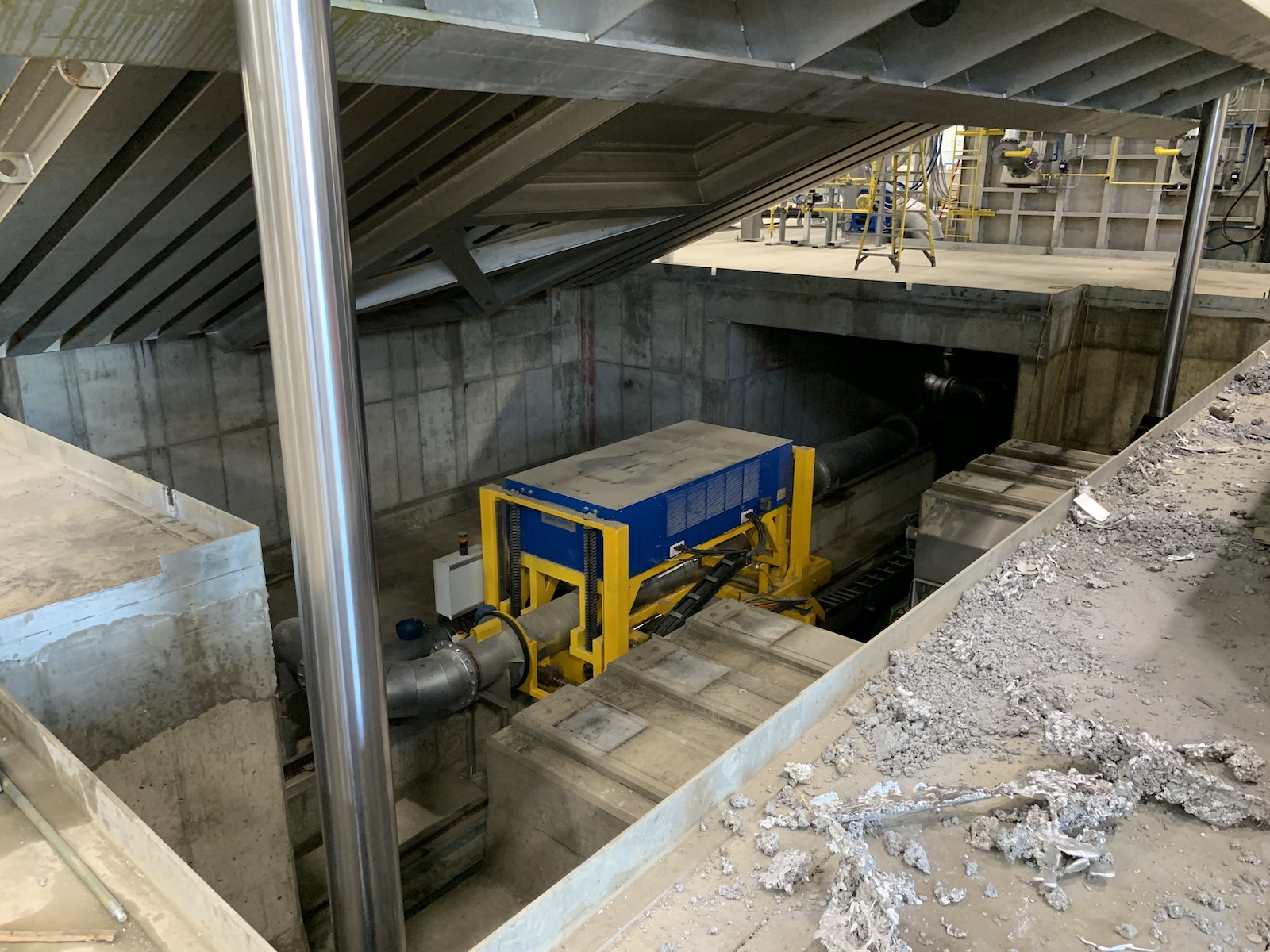
Following melting and preparation of the aluminum, the holding furnace delivers the molten aluminum to the Wagstaff casting troughs with laser molten metal level control. In the troughs, the molten metal passes through an aluminum in-line refiner (AIR) system from STAS and then through ceramic foam filters from Drache in order to further ensure metal purity. The automated AIR degassing system features a lifting and rotating cover system, three in-line rotors, and an integrated maintenance platform. It is designed with chlorine dispensing capability and to be particularly effective for DC casting.
Casting of billet or slab up to 360 inches in length is carried out on a Wagstaff ShurCast™ casting machine with a table carriage system (Figure 5). For the casting of billet (ranging from 10 to 32 inches), three Airslip, one NuMax, and three ARC (for large billet over 21 inches in diameter) casting molds were supplied. In addition, four Epsilon rolling slab casting molds enable ingot casting (ranging from 50.5 x 64 inches to 50.5 x 93 inches). The entire casting process is controlled through the AutoCast system with SCADA data management. Wagstaff also supplied a cooling system for the casting water and provided pit utilities.
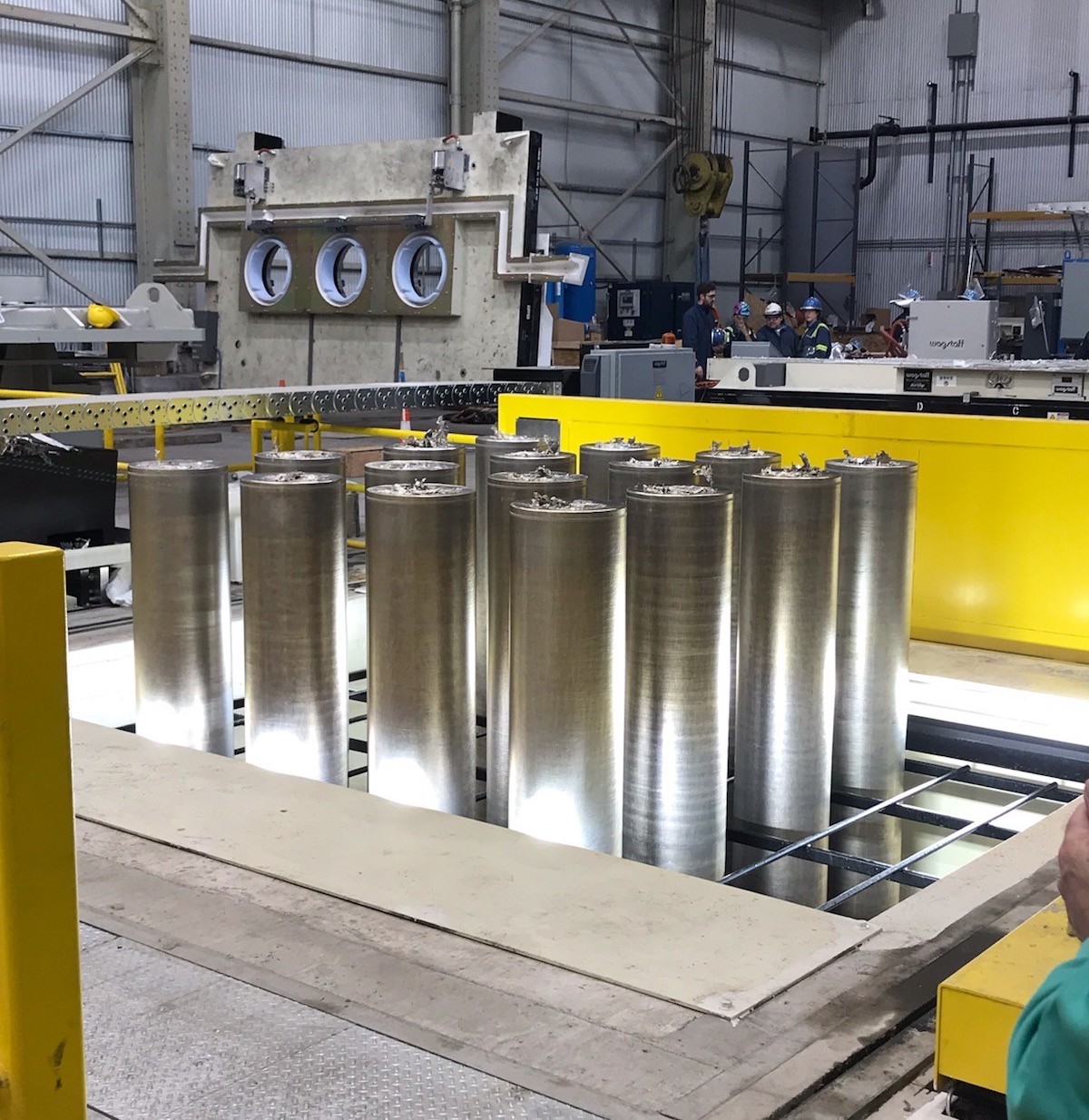
GNA alutech supplied two homogenizing furnaces (with a 200,000 lb payload capacity) along with a cooling chamber, an automatic rail-bound charging machine, and two load storage tables. This system will be used for the homogenization of billet and slab in both common and hard alloys (Figure 6). The exterior of the homogenizing furnaces includes a double wall casing that is divided into four heating zones. The interior surfaces, fans, and internal ducting are made from 304 grade stainless steel, with the thermal expansion taken into account through the use of expansion joints. The furnaces will be heated through natural gas-fired burners supplied by Fives North American Combustion and controlled with a Rockwell PLC system. All of these features together ensure the tight temperature control required for the heat treatment of specific alloys.
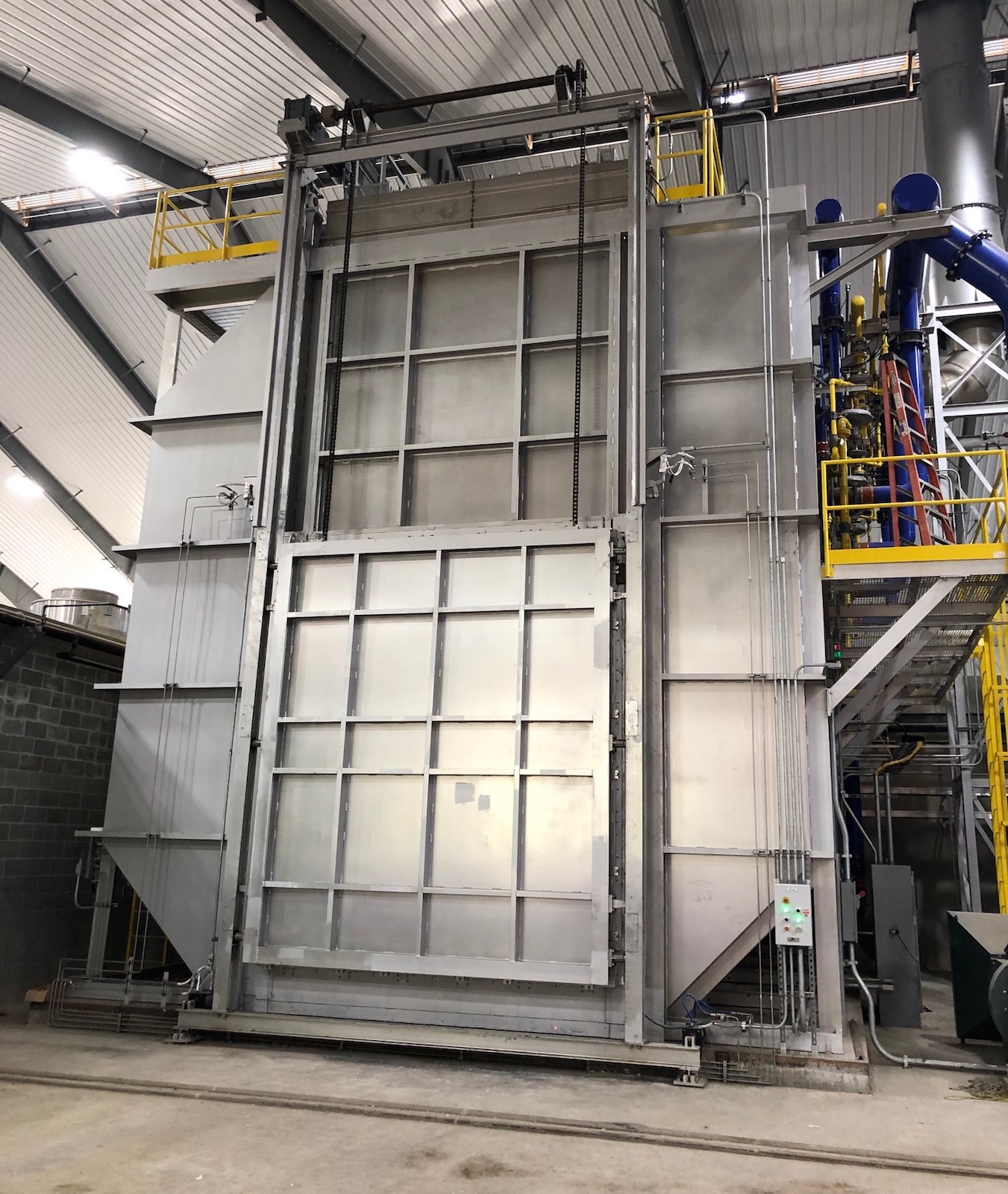
A two-wheel band bandsaw powered by a 75 kW motor was supplied by Sermas Industrie for cutting billet up to 52 inches in diameter and for cutting the top and tails of slab up to 42 x 96 inches (Figure 7). Since Ellwood Aluminum also needed to be able to produce thin plate from slab, the machine was outfitted with the ability to twist the blade to a 90° angle in order to cut slices from the aluminum slab. Downstream of the casthouse, Ellwood Aluminum installed scalping, cropping, and filleting capabilities for the further processing of billet into forging stock.
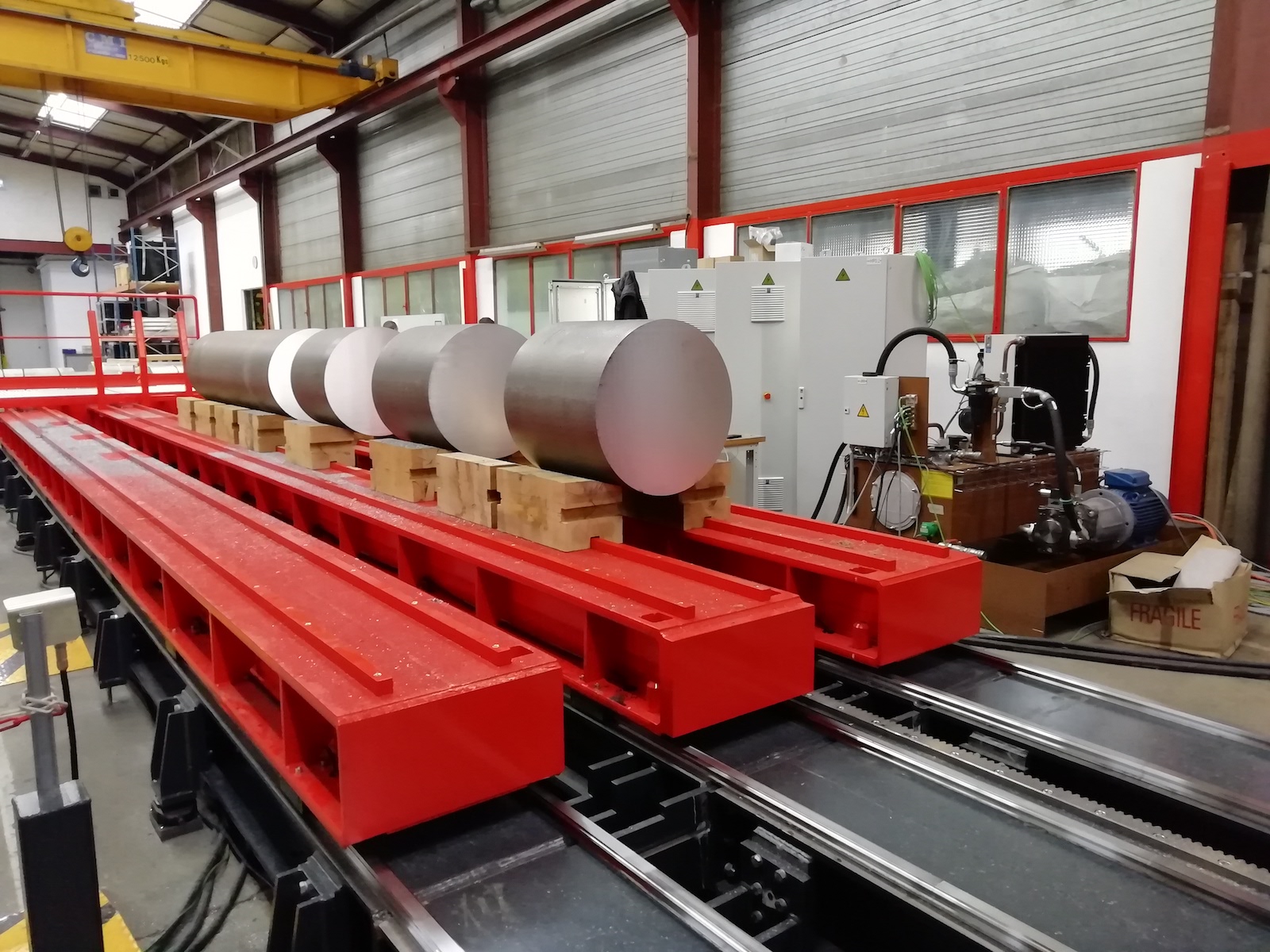
As indicated, all of the systems within the casthouse are highly automated. “Ellwood Aluminum believes that a clear knowledge of secondary aluminum processing combined with a high level of automation are key to our future,” noted Gregory. “The potential safety gains alone are reason enough to justify the added cost of the automation. A secondary benefit is that when implemented correctly, automation increases process stability and control, resulting in a better product with the least amount of waste.”
Ellwood Aluminum has also installed systems to minimize the environmental impact of the operation, such as advanced air filtration and aluminum dross processing. The reverse air cleaning system and patented baghouse from Entecco is specifically designed for fume control in secondary aluminum operations (Figure 8). Aluminum scrap melting is known for emitting a significant amount of hydrochloric acid (HCl) per ton of scrap melted. The system features a small footprint that reduces the amount of insulation and trace heating required for improved temperature control, something that is especially important when dealing with acid-laden gases. The system also maintains a level of lime-based dust cake on the bags, which is also important when dealing with acid. These capabilities enable the air cleaning system to achieve the tight filtration levels required by the government.
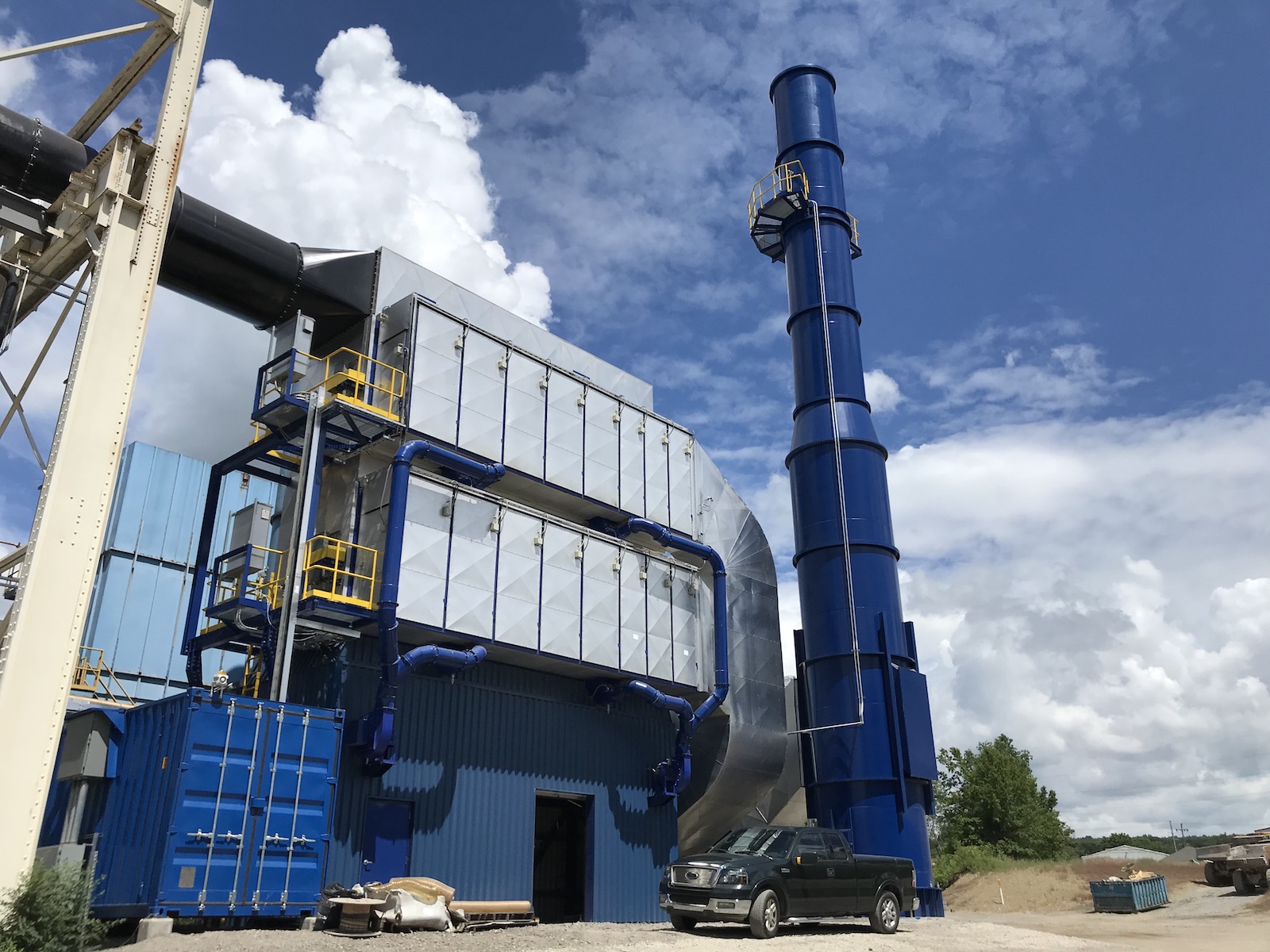
In addition, Ellwood Aluminum installed dross press technology from ALTEK, which prevents the company from having to landfill the dross material as a waste product. The dross press cools the hot material and agglomerates smaller particles of aluminum entrapped within the dross in order to maximize the recovery of aluminum.
With the advanced technologies implemented, the new Ellwood Aluminum casthouse will be able to produce aluminum billet and slab in 2xxx, 5xxx, 6xxx, and 7xxx series alloys. “Historically, our company has been primarily focused on forging and specialty applications, so that will also represent our main cast aluminum products,” said Gregory. “However, with this facility, we can provide products for the extrusion and plate markets as well.”
Training & Safety
With the shift from steel to aluminum casting, Ellwood Aluminum will need to address the different approaches to manufacturing. For example, steel being denser than aluminum, it is melted at higher temperatures. Furthermore, there are dozens of new alloy compositions the company will need to learn and produce in order to serve their customers. Nevertheless, the company is confident they will be able to make this shift.
“While Ellwood is newer to the aluminum melting side, we have a great deal of experience and a very successful track record in quality systems, metallurgy, material handling, and production processes that are directly applicable,” said Gregory. “It is important to be humble though, as there are differences in handling aluminum that need to be understood and practiced. Hiring of experts, listening to specialists, and utilizing third party consultants is critical to our safe start-up and successful operation.”
Ellwood Aluminum currently has 19 employees, which could likely increase to 40 once full production capacity is reached. The company has taken a strategic approach to training in order to ensure that it can produce high quality aluminum in a safe manner. Multiple methods of training will be implemented including offsite, onsite, classroom, videos, and hands on.
“Technologies and equipment come and go, however, Ellwood Aluminum is founded in the belief that our employees, at all levels, are the key to our success,” explained Gregory. “Not one drop of aluminum is worth anyone getting injured over. Everyone at Ellwood Aluminum is fully aware that regardless of the most advanced technologies and equipment, success is dependent on our team being able to safely utilize that equipment to meet the requirements of our customers.”
Conclusion
With the launch of Ellwood Aluminum, the Ellwood Group marks its entry into aluminum casting, enabling it to better serve the automotive, aerospace, and commercial transportation markets. Despite the inherent risk of entering an industry they have not been a part of before, the company is certain that embarking on aluminum production is the right path forward. As such, the company has proactively planned for the future success of its new aluminum operation. The site has been designed for expansion, with a second casting pit and foundation work already in place for a phase two expansion. Should Ellwood Aluminum decide to expand into phase two, the facility will be able to produce up to 350 million lbs per year of aluminum billet and slab. “The Ellwood Group is focused on quality products and in being flexible enough to rapidly meet the changing needs of our customers,” said Gregory. “Ellwood Aluminum is no different.”
In addition, the Ellwood Group has plans to expand its downstream operations. Ellwood Specialty Steel distributes steel and aluminum plate for molds, dies, and other tooling. Steel plate is used in metal die casting and forging operations, while aluminum plate is used for plastic mold applications. According to the company, the aluminum business has been growing, Therefore, they will be investing $4 million to add 20,000 sq ft to the aluminum building for improved process and operational flow. Aluminum plate for the project will be delivered from the Ellwood Aluminum casthouse.
Overall, the Ellwood Group’s approach to investment is focused on long-term, rather than short-term, incremental benefits. This stability strategy aims to set a growth trajectory over the course of decades and to invest in projects that will last for generations. “Ellwood’s status as a private, family-owned company permits us to operate independently of short-term perspectives, while acting to maximize long-term values of product quality and customer service,” explained Gregory. “We haven’t lost sight of what’s right: treating our employees, industry partners, and customers like family.”
Editor’s Note: This article first appeared in the August 2020 issue of Light Metal Age. To receive the current issue, please subscribe.
